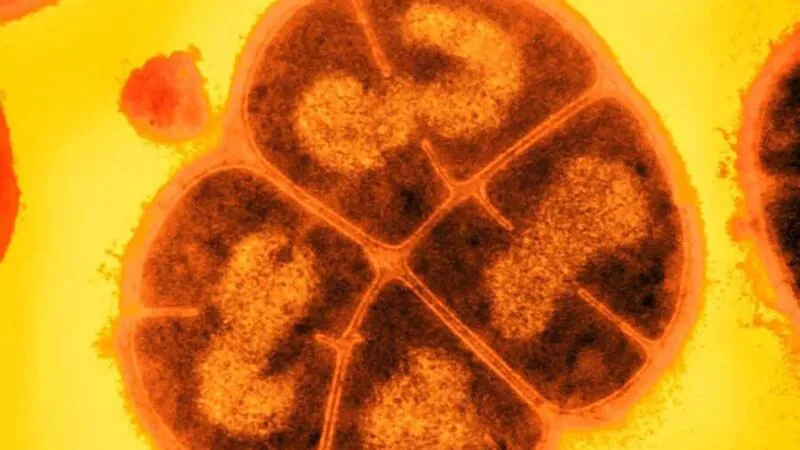
Discover the Extraordinary Secret of 'Conan the Bacterium'—Nature's Ultimate Survivor!
2024-12-11
Author: Yan
Introduction
A remarkable type of bacteria known as *Deinococcus radiodurans*—affectionately dubbed “Conan the Bacterium”—has astonished scientists with its unparalleled ability to withstand extreme conditions, including radiation doses an astonishing 28,000 times more lethal than what a human can endure. This survival prowess is attributed to a unique biochemical secret: a potent antioxidant composed of simple molecules.
Research Findings
Recent research published in the *Proceedings of the National Academy of Sciences* has unveiled how this antioxidant operates. Scientists discovered that the combination of manganese, phosphate, and a specific peptide generates a remarkable protective effect against radiation. The study highlights that this trifecta works more effectively together than any two components alone, marking a significant breakthrough in understanding how this bacterium achieves such incredible resilience.
Implications for Space Exploration
The implications of these findings could be groundbreaking, especially for future space exploration. Astronauts venturing into deep space are at greater risk from high levels of cosmic radiation. Harnessing the power of these antioxidants could pave the way for developing innovative protective strategies, potentially safeguarding human health on missions to Mars and beyond.
Expert Insights
Brian Hoffman, a co-author of the study and a professor at Northwestern University, emphasized the significance of their findings, stating, “We’ve unlocked the ‘magic’ potency of this trio, providing crucial insights into its effectiveness as a radioprotectant." The study's authors suggest that the knowledge gained could be essential not just for space travel but also for various applications on Earth, particularly in situations involving radiation exposure, like nuclear accidents.
Extraordinary Adaptability
Previous investigations into *Deinococcus radiodurans* have highlighted its extraordinary adaptability; it is even noted in the Guinness World Records as the most radiation-resistant organism. In a shocking revelation, researchers demonstrated that these resilient bacteria can survive in the harsh vacuum of space, remaining viable for up to three years outside the International Space Station. They can also endure extreme temperatures, acidity, and desiccation—making them a marvel of natural selection.
MDP: Melatonin-Derived Protective
In the most recent study, the focus was on MDP (melatonin-derived protective), a synthetic antioxidant modeled after *Deinococcus radiodurans*. This innovative radioprotector has already shown promise in medical applications, such as in radiation-inactivated vaccines.
Future Developments
The research team explored how MDP’s components function, discovering that the breakthrough lies in creating a highly stable triple complex that optimally shields cells and proteins from radiation damage. Dr. Tetyana Milojevic, chair of exobiology at the University of Orléans in France, noted the potential for developing even more effective manganese-based antioxidants, enhancing both medical and industrial applications.
Ongoing Exploration
As scientists continue their work, they remain intrigued by the possibility of similar antioxidant mechanisms existing in other life forms. This ongoing exploration could lead to profound advancements in our understanding of radiation resistance and its applications not just in outer space, but also in protecting us from radiation here on Earth.
Conclusion
Prepare to be amazed as the secrets of *Conan the Bacterium* could soon be unlocking a safer future for space travelers and Earth inhabitants alike!


 Brasil (PT)
Brasil (PT)
 Canada (EN)
Canada (EN)
 Chile (ES)
Chile (ES)
 España (ES)
España (ES)
 France (FR)
France (FR)
 Hong Kong (EN)
Hong Kong (EN)
 Italia (IT)
Italia (IT)
 日本 (JA)
日本 (JA)
 Magyarország (HU)
Magyarország (HU)
 Norge (NO)
Norge (NO)
 Polska (PL)
Polska (PL)
 Schweiz (DE)
Schweiz (DE)
 Singapore (EN)
Singapore (EN)
 Sverige (SV)
Sverige (SV)
 Suomi (FI)
Suomi (FI)
 Türkiye (TR)
Türkiye (TR)